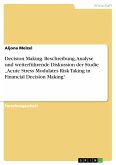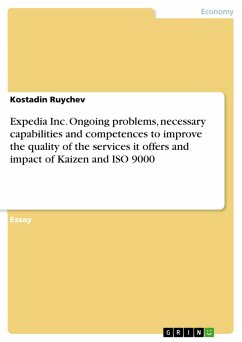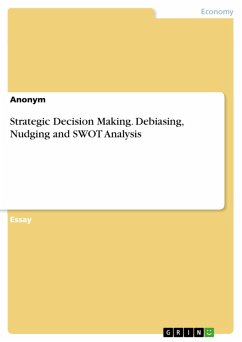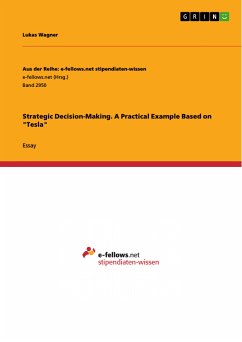Seminar paper from the year 2022 in the subject Business economics - Business Management, Corporate Governance, grade: 1.3, University of Western Sydney (School of Engineering, Design and Build Environment), language: English, abstract: A project's success depends mainly on the quality of the decisions. The influences on human judgments and decisions and how to reduce or avoid them are described in the following chapters. To successfully realise large-scale projects, the responsible decision-makers use project management instruments. The goal is to realise the project and its previously defined functionalities within a given time and budget. Although in project management, all the individual specifications of a project must be taken into account, generally applicable strategies have been established in recent years that can reduce the complexity, uncertainty and risks of a project. The process model, according to Hobel and Schütte, describes the project process in three phases: Project definition, project implementation, and project completion. The first phase is about project definition. Based on an analysis of the initial conditions, i.e. of the project object and environment, a clear, complete, measurable, realisable and scheduled project goal is defined. In a risk analysis, the likelyhood of occurrence and expected damage of certain risks are identified, and preventive and countermeasures for the event of occurrence are defined. In the second phase, individual contracts for the project realisation are awarded and carried out. The project's progress is constantly monitored by project controlling and risk management using an internal control system. The project conclusion marks the last phase of a project. After completing all work, the project manager presents the work result to the client. The client reviews it with regard to the achievement of objectives and formally accepts it. The experience and knowledge gained are saved and flow back into new project processes in the form of suggestions for improvement and lessons learned. The project's outcome depends on the management decisions of the project participants in the individual project phases. Decisionmaking in large-scale projects is shaped by the complexity of the project itself, dynamic relationships between the individual actors, the market, the environment and, above all, by the systematic nature of the decision-making processes in the face of limited rationality.
Dieser Download kann aus rechtlichen Gründen nur mit Rechnungsadresse in A, B, BG, CY, CZ, D, DK, EW, E, FIN, F, GR, HR, H, IRL, I, LT, L, LR, M, NL, PL, P, R, S, SLO, SK ausgeliefert werden.









